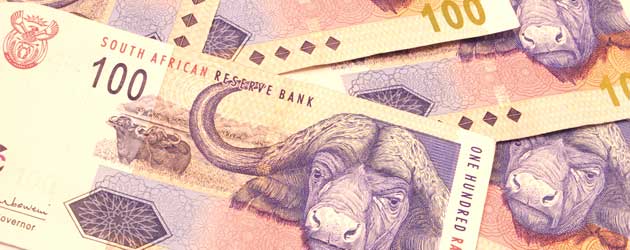
The Pound Sterling to South African Rand (GBP/ZAR) exchange rate was trading higher on Tuesday as the UK currency was supported by a positive retail sales report and as marker attention focuses upon upcoming South African manufacturing data.
The Rand was also trading lower against the majority of its most traded peers such as the US Dollar and Euro. Economists are expecting that the manufacturing data will show that conditions in the African nations manufacturing sector remained weak in September as the impacts of strikes held earlier in the year and weakness in the Eurozone continues to impact upon output. The Eurozone is South Africa’s biggest trading partner.
The data is expected to show that manufacturing output grew by a moderate 1.9% in September, adding to the 2.2% increase recorded in August. A number of economists however are predicting a decline of -1.34% on a month on month basis and decline by -0.9% on an annual basis.
‘Given that we are slightly softer than consensus with regards to this afternoon’s domestic manufacturing reading this data could be negative for the Rand from an overall growth perspective.’ Barclays Africa group said in a note to clients.
The Pound meanwhile received support from a report published by the British Retail Consortium (BRC) showed that retail sales spending rose by 1.4% in October. The cause for the rise was an increase in spending due to Halloween and a rise in furniture purchases. The data also showed that shop prices were cut by 1.9% lower than the previous year, matching the price drop seen in July.
‘Sadly, this warmer weather has left many fashion retailers with a substantial stock overhang, raising the question of earlier and deeper discounts as we get closer to Christmas. Promotions remained rife in the grocery sector, leaving it with the unenviable moniker of the worst performing sector,” added McCorquodale, as total food sales spending fell 1.4 percent in the three months to October,’ said David McCorquodale, head of retail at survey sponsor KPMG.
Pound to South African Rand Exchange Rate Edges Lower on Data
The Pound softened slightly against the South African Rand and is likely to give up more ground throughout the session as the South African manufacturing data smashed economist forecasts.
South Africa’s manufacturing production rose more than forecast in the month of September, expanding by 8% on a year-on-year basis from a revised 1% contraction in August, Statistics South Africa said on Tuesday.
On a month-on-month basis, factory production rose 4% but fell 1.3% in the three months to September compared with the previous three months.
Economists had expected a 5.1% year-on-year expansion and 1.55% expansion on a month-on-month basis.
Further gains for the Rand will depend on the strength of the US Dollar. As the ‘Greenback’ continues to edge higher the Rand will likely remain under pressure.
Pound to South African Rand Exchange Rate Tumbles on BoE Report
The Pound to South African Rand (GBP/ZAR) exchange rate fell sharply on Wednesday afternoon as the UK currency suffered a broad sell-off on the back of the Bank of England warnings that UK inflation could fall below 1% over the next six months. The BoE also said that interest rates are not likely to rise until late in 2015 and any rises will be limited.
The South African Rand meanwhile received some support from retail sales data, which showed that sales increased more than forecast on a year on year basis. On a monthly basis sales fell by 0.8%. Commenting on Wednesday’s retail sales data for September, Rand Merchant Bank economists said in a note that “pent-up demand” following a strike by metals and engineering workers in July, an improvement in household credit demand and a decline in food inflation were some of the factors that probably supported consumer spending in September.
Pound to South African Rand Exchange Rate Continues to Soften
The GBP/ZAR exchange is forecast to slide to a 2-week low on Thursday as yesterday’s Bank of England Inflation report and warning continued to weigh on the already battered Pound. The publication of data showing that UK house price growth fell sharply in October was also weighing on the Pound.
Mining production rallied strongly in September adding to signs that South Africa’s mining sector has recovered from the impacts of strikes earlier in the year. As a result of the data’s release the GBP/ZAR exchange rate dipped to 17.6150.
The South African Rand extended its rally as sentiment towards emerging-market currencies perked up. The currency was particularly strong against the Pound due to the moderation of the UK’s inflation outlook, which reduces the probability of an interest rate hike in the near term.

